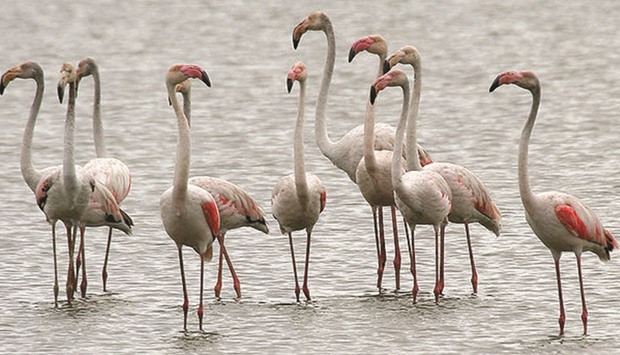Failing to bear the bitter chill of winter, migratory birds have already started arriving in water bodies and major rivers in northern districts of Bangladesh from Himalayan and Siberian regions.
According to local people and experts, migratory birds had been arriving in the northern districts in huge number even a couple of decades ago.
“The number of the migratory birds declined in recent times following adverse impacts of climate change due to rise in global temperature,” said Mamunur Rashid of RDRS Bangladesh.
Citing statistics, he said that the average temperature had been continuing to rise in the Himalayan, Siberian, Nepal, Xinxian and Mongolian regions making those places habitable to some extent for birds even during winters.
Dr Tuhin Wadud, associate professor at Begum Rokeya University, said that migratory birds were coming in lesser number due to reduction of water bodies and depletion of many species of sweet water fish from the marshes.
The adverse impacts of climate change and drying up of the rivers created threats to bio-diversity, ecology and environment reducing number of many species of fish, insects, birds and some animals causing grave concern to the natural balance.
“As a result, the number of migratory birds is continuing to be less and their duration of stay has been shortened in water bodies as they dry up much earlier before end of the winter season,” Tuhin added.
Delwar Hossain, 75, of Chilmari in Rangpur district, said that a fewer number of Bali Duck, Samukal, Bright, Rose King, Bali Lenja, Chity, Sorail, Boikal, Nilshir, Piyang, Pankouri, Rangamuri, Pintail, Pantamukhi, Chokha-chokhi and Khonjona were found flocking to marshy areas on the Brahmaputra river.
“The riverside people find only a fewer number of migratory birds now in Noonkhawa, Madarganj, Narayanpur, Jatrapur, Begumganj, Hatia, Kodalkati, Astomirchar, Noyarhat, Mohanganj and Tajerhat in the Brahmaputra basin,” he said.
Mesbahul Islam, a specialist at the Department of Agriculture Extension, said the number of migratory birds has been declining alarmingly in recent years in the Brahmaputra basin.

The number of the migratory birds has been declining in recent times.
